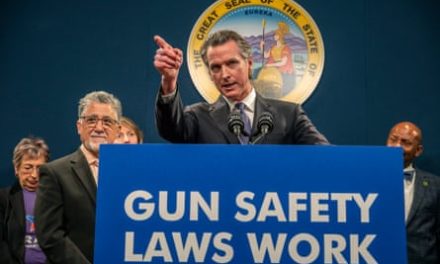Labour has accused the government of “stifling children’s creativity and damaging the talent pipeline” for Britain’s creative industries by failing to provide proper arts and culture education.
The party said the arts were being squeezed out of schools as a result of tightened budgets, teacher shortages and the decreasing importance of arts and culture subjects through school accountability measures such as English baccalaureate entries.
It condemned what it called a “narrative at the top of the government” that the arts played second fiddle to other subjects, leading to low morale among teachers and a drop in arts provision, and pledged to put the creative and cultural sectors at the heart of its mission to grow the economy.
Speaking at a panel on arts education at the Theatre and Touring Summit in London on Monday, the shadow arts minister, Barbara Keeley, will highlight the stark drop in the number of students taking arts GCSEs, which has fallen by 40% since 2010. There are now 12,000 fewer students taking music (a 27% reduction) – despite the UK music industry contributing £4bn to the UK economy in 2021.
The number of drama teachers in state-funded secondary schools in England has also fallen by 22% since 2011, and there has been a 15% decline in the number of music teachers and a 12% decline in the number of art and design teachers over the same period. Furthermore, the number of art and design trainee teachers has nearly halved in the past two years.
“The government’s squeeze on arts, culture and creative subjects is self-defeating,” Keeley said. “Despite the clear benefits of the arts for young people and for the creative economy, there has been a systematic exclusion and downgrading of arts subjects and experiences within the state-funded education system.”
She said the government risked denying young people the chance to explore their full potential, and it was “not right that these subjects are increasingly becoming the preserve of the few whose families can afford fee-paying schools when the benefits to students, society and our economy are so manifold”.
Labour said the cancellation of school trips and outings due to rising costs was having a serious effect on opportunities for children and young people to experience live performance. More than half of parents surveyed by UK Music said the quality of a school’s music education was an important factor in deciding to send their child there.
“Labour will give every child a broad and balanced education which nurtures creativity,” Keeley said. “Our approach to education will ensure that every child and young person has access to high-quality arts, culture and creativity in their lives and is given the skills, knowledge and understanding to progress and to thrive”.
Last year the Conservatives faced a backlash after Dominic Raab mocked Angela Rayner for being a “champagne socialist” for attending the Glyndebourne opera festival. Boris Johnson’s spokesperson later said the party believed “everybody should be able to enjoy arts and culture and other such things across the UK”.
after newsletter promotion
A number of universities have also made cuts to arts and humanities provision after a government crackdown on what ministers regard as “low-value” courses, with universities potentially facing penalties if fewer than 60% of undergraduates are in professional jobs or studying for a further degree within 15 months of graduating.
Authors including Philip Pullman have raised concerns about Sheffield Hallam University’s decision to suspend its English literature degree last year.
Join the exciting world of cryptocurrency trading with ByBit! As a new trader, you can benefit from a $10 bonus and up to $1,000 in rewards when you register using our referral link. With ByBit’s user-friendly platform and advanced trading tools, you can take advantage of cryptocurrency volatility and potentially make significant profits. Don’t miss this opportunity – sign up now and start trading!






Recent Comments